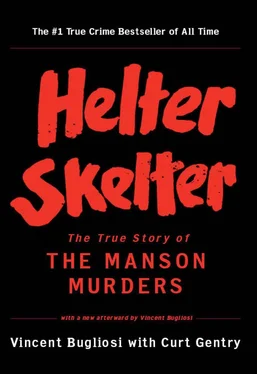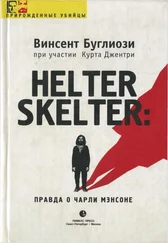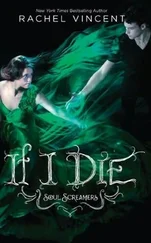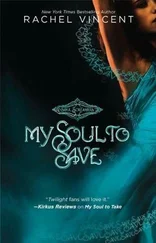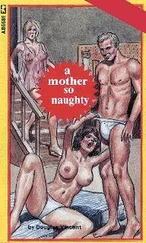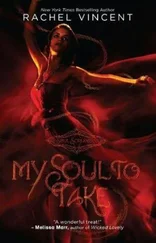THE COURT“After nine and a half months of trial, all of the superlatives had been used, all of the hyperbole has been indulged in, and all that remains are the bare, stark facts of seven senseless murders, seven people whose lives were snuffed out by total strangers…
“I have carefully looked, in considering this action, for mitigating circumstances, and I have been unable to find any…
“It is my considered judgment that not only is the death penalty appropriate, but it is almost compelled by the circumstances. I must agree with the prosecutor that if this is not a proper case for the death penalty, what would be?”
Speaking to Manson, Judge Older said: “The Department of Corrections is ordered to deliver you to the custody of the Warden of the State Prison of the State of California at San Quentin to be by him put to death in the manner prescribed by law of the State of California.”
There was at this time no Death Row for women. A special isolation wing was being constructed at the California Institute for Women at Frontera, and Atkins, Krenwinkel, and Van Houten were sent there to await execution.
It was anticipated that the appeals would take at least two and possibly as long as five years.
In actuality, their fate would be decided in less than one.
After the sentencing, I didn’t anticipate ever seeing Charles Manson again. But I’d see him twice more, the last time under very peculiar circumstances.
EPILOGUE
A Shared Madness
“A more comprehensive description of her condition will necessitate further study. But at this time we might suggest the possibility that she may be suffering from a condition of folie à famille , a kind of shared madness within a group situation.”
DR. JOEL HOCHMAN, in his psychiatric report on Susan Atkins
“I lived with Charlie for one year straight and on and off for two years. I know Charlie. I know him inside and out. I became Charlie. Everything I once was, was Charlie. There was nothing left of me anymore. And all of the people in the Family, there’s nothing left of them anymore, they’re all Charlie too.” [84] From the Robert Hendrickson documentary film, Manson .
PAUL WATKINS
“We are what you have made us. We were brought up on your TV. We were brought up watching ‘Gunsmoke,’ ‘Have Gun Will Travel,’ ‘FBI,’ ‘Combat.’ ‘Combat’ was my favorite show. I never missed ‘Combat.’” [85] From the Robert Hendrickson documentary film, Manson .
BRENDA
“Whatever is necessary, you do it. When somebody needs to be killed, there’s no wrong. You do it, and then you move on. And you pick up a child and you move him to the desert. You pick up as many children as you can and you kill whoever gets in your way. That is us.” [86] From the Robert Hendrickson documentary film, Manson .
SANDY
“If you find an apple that has a little spot on it, you cut out that spot.”
SQUEAKY
“You just better hope I never get out.”
BOBBY BEAUSOLEIL
Although Manson and the girls had been convicted, the trials, and the murders, were not yet over.
For their part in the attempted murder of prosecution witness Barbara Hoyt, four of the five defendants served ninety days in the County Jail, while the fifth escaped punishment entirely.
Although I was not assigned to the case, I questioned the way it was handled. Because it was felt that the evidence against the defendants was weak, and because of the expense of flying in witnesses from Hawaii, the DA’s Office, LAPD, and the defense attorneys agreed to a “deal.” In return for the defendants pleading “no contest” to one count of conspiracy to dissuade a witness from testifying, the prosecutor made a motion to reduce the charge from a felony to a misdemeanor. Judge Stephen Stothers granted the motion, and on April 16, 1971, he sentenced four of the five defendants—Lynette Fromme, aka Squeaky; Steve Grogan, aka Clem; Catherine Share, aka Gypsy; and Dennis Rice—to ninety days in the County Jail. Since they had already served fifteen days, they were back on the streets in seventy-five days.
The fifth defendant, Ruth Ann Moorehouse, aka Ouisch, the girl who actually gave Barbara Hoyt the LSD-laden hamburger, got off scot-free. When it came time for sentencing, she failed to appear. Although a bench warrant was issued for her arrest and she was known to be living in Carson City, Nevada, the DA’s Office decided it wasn’t worth the trouble to extradite her.
Charles “Tex” Watson went on trial in August 1971. A good portion of my preparation took place not in a law library but in a medical library, since I was relatively sure that Watson was going to plead not guilty by reason of insanity and put on a psychiatric defense.
The trial had three possible phases—guilt, sanity, and penalty—each of which presented its own special problems.
Even though defense attorney Sam Bubrick told me that Watson intended to take the stand and confess, I knew I still had to present a strong case during the guilt phase, since it was a safe bet that Watson’s testimony would be self-serving. Too, I had to prove (by evidence such as Watson’s instructing Linda to steal the $5,000) that although Watson was dominated by Manson, he still had enough independence to make him legally responsible for his acts. One of the key issues during the guilt trial, then, was whether Watson was suffering from diminished mental capacity at the time of the murders. If he was, and it was of such a nature that it prevented him from deliberating and premeditating, the jury would have to find the chief Tate-LaBianca killer guilty of second rather than first degree murder.
If convicted of any degree of criminal homicide, then there would be a sanity trial, in which the sole issue would be whether Watson was sane or insane at the time of the murders. I anticipated, and quite rightly, that the defense would call a number of prominent psychiatrists (eight were called), many of whom would testify that in their opinion Watson was insane. Therefore I’d not only have to subject their testimony to withering cross-examination, I’d also have to present an abundance of evidence showing that Watson was in full command of his mental faculties at the time of the murders and that he was well aware that in the eyes of society what he was doing was wrong. In short, I had to prove that he wasn’t legally insane. Such evidence as his cutting of the telephone wires, his telling Linda to wipe the knives of fingerprints, his manner when talking to Rudolf Weber, and his using an alias when questioned by the authorities in Death Valley a few weeks after the murders thus became extremely important to proving my case, in that all were circumstantial evidence of a consciousness of wrongdoing and guilt on Watson’s part.
If Watson was convicted of first degree murder and also found sane, then the jury would have to decide the ultimate question: whether he was to be given life or death. And this meant I would again face many of the same problems I had with the girls in the penalty phase of the earlier trial.
Still another problem was Watson’s demeanor. In an obvious attempt to project a college-boy image, Watson dressed very conservatively in court—short hair, shirt and tie, blue blazer, slacks. But he still looked strange. His eyes were glassy, and never seemed to focus. He reacted not at all to the damning testimony of such witnesses as Linda Kasabian, Paul Watkins, Brooks Poston, and Dianne Lake. And his mouth was always slightly gaping, giving him the appearance of being mentally retarded.
Читать дальше
